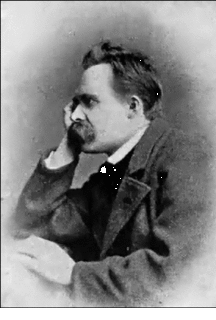 More About Dionysos
More About DionysosFor Vernant, Dionysos was the god who crosses the boundaries and confuses reality and illusion, who makes us lose in his collective our self-
consciousness and identity of self. Tragedy is appropriately Dionysiac when we suspend our disbelief in watching the drama and enter a world of mimesis, a world presided over by the mask behind which individual identity is hidden.
-Storey and Allan, Guide to Ancient Greek Drama (Blackwell)
That's fine, but "lose" should be in quotation marks, because self-consciousness and identity aren't "lost," they're simply relegated to another part of awareness. The "confusion" of reality and illusion in drama is itself an illusion, responsible for a lot of the enjoyment of illusion in art. This seems to be the easiest thing in the world to get confused about, but it does remind us that the inadequacy of our ways of describing "illusion" is due to the inadequacy of our ways of describing "reality."
Really, someone ought to do something about it.
 Stop Me If You've Heard This One Before
Stop Me If You've Heard This One BeforeThe entire comedy of art is neither performed for our betterment or education nor are we the true authors of this art world. On the contrary, we may assume that we are merely images and artistic projections for the true author, and that we have our highest dignity in our significance as works of art--for it is only as an aesthetic phenomenon that existence and the world are eternally justified--while of course our consciousness of our own significance hardly differs from that which the soliders painted on canvas have of the battle represented on it. Thus all our knowledge of art is basically quite illusory . . .
--Nietzsche, Birth of Tragedy




No comments:
Post a Comment